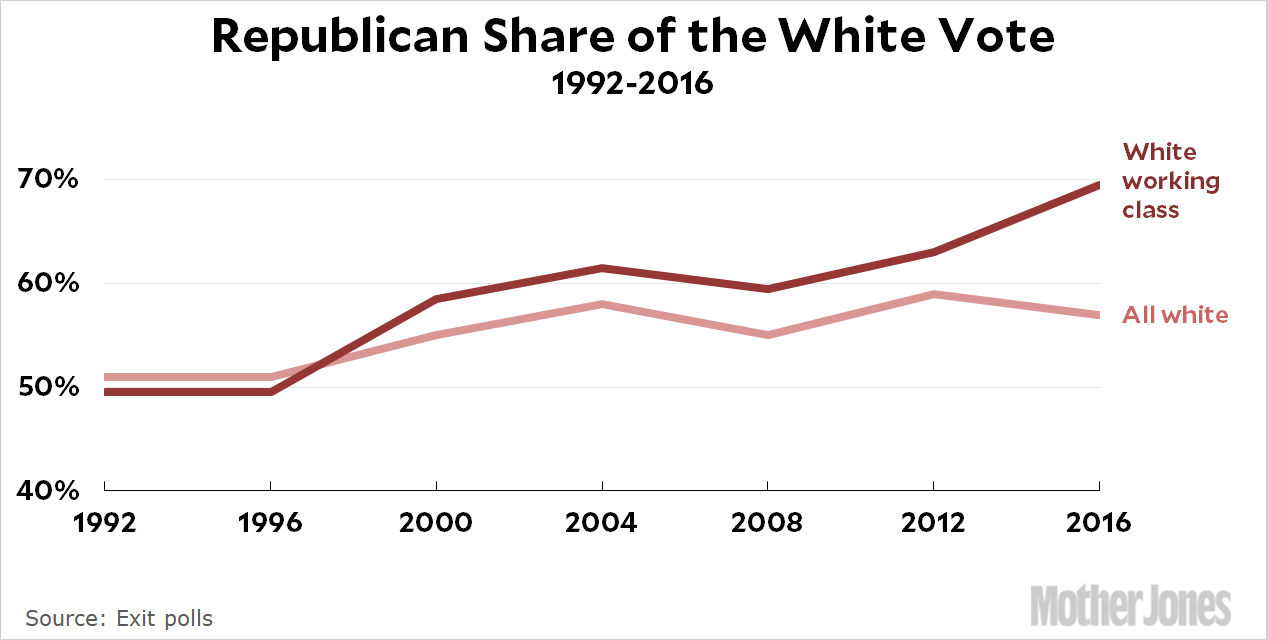German Lopez channels the conventional wisdom:
The past year of research has made it very clear: Trump won because of racial resentment https://t.co/ozBxkOmT7S
— Vox (@voxdotcom) December 15, 2017
Technically, this is true. A number of different studies have shown that the strongest predictor of a vote for Donald Trump was racial resentment.
But in real-world terms these studies are meaningless. Racial resentment has been a growing predictor of votes for every Republican candidate for the past couple of decades. Donald Trump may have tried hard to move that needle, but there’s not a lot of evidence that he did. That leaves us with cruder measures that are frustratingly imprecise. Take a look at the white vote since 1992, for example:

Bill Clinton was the last Democrat to have much appeal to white voters. Since 2000, whites have ticked the box for Republicans at about the same rate in every election. Trump, in fact, did a little worse than Mitt Romney in 2012.
On the other hand, Trump did considerably better than Romney with white working-class voters. Unfortunately, this is hard to assess as well, since Republicans have been steadily increasing their share of the white working-class vote for the past five elections. As with the racial resentment correlations, the question is whether Trump helped drive this upward trend, or merely benefited from it? Since racial resentment among white men hasn’t changed much in decades, most likely it’s the result of increasing partisan polarization, something that Trump had nothing to do with.
As it happens, there is some evidence that racial resentment partially drove the results in a few specific places. The absolute numbers are small, but potentially pivotal given the oddities of the Electoral College. It’s also unquestionably true that Republicans as a whole demonstrated a surprisingly high tolerance for a candidate who was far more explicitly racist, sexist, and xenophobic than any in recent memory. That was disheartening, but it’s not evidence that racism actively drove the results of this election any more than previous ones.
Keep in mind that Trump actually did a little worse than models predicted based on fundamentals. This suggests that racism didn’t have an outsize effect in 2016. It had roughly the same dismal effect it’s always had. What’s more, if James Comey hadn’t released his infamous letter eleven days before the election, we wouldn’t even be talking about this. The fact that Comey did, in fact, release his letter, leading to Trump’s unexpected win, is hardly a good reason to not only hold this endless discussion, but to insist that it’s been settled.


















